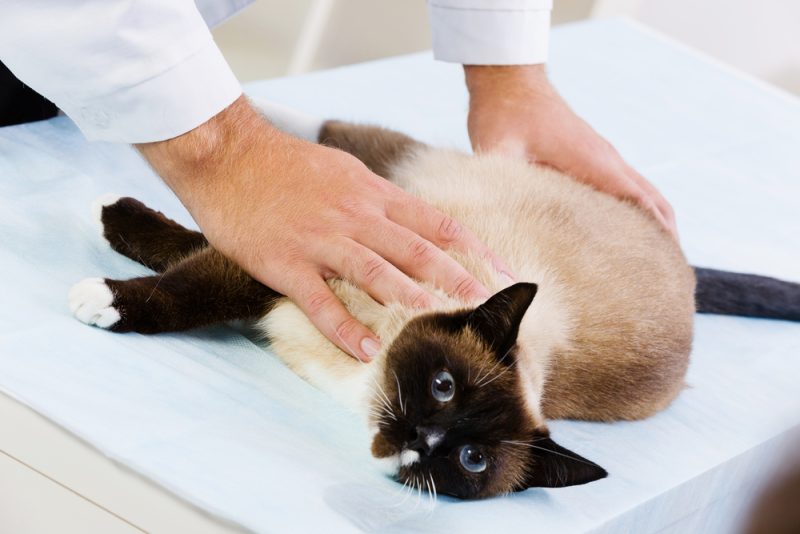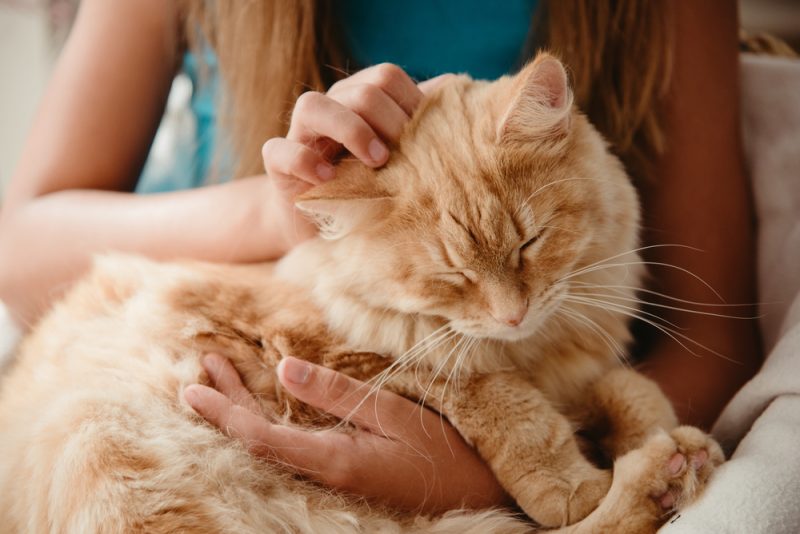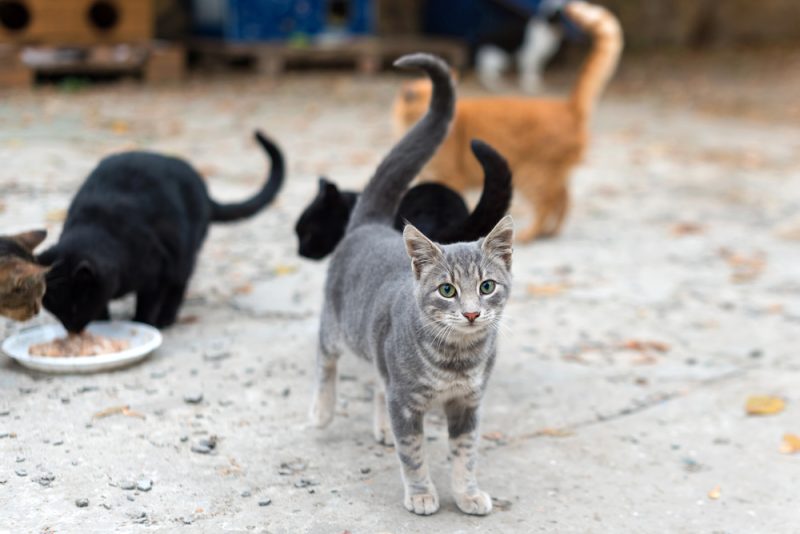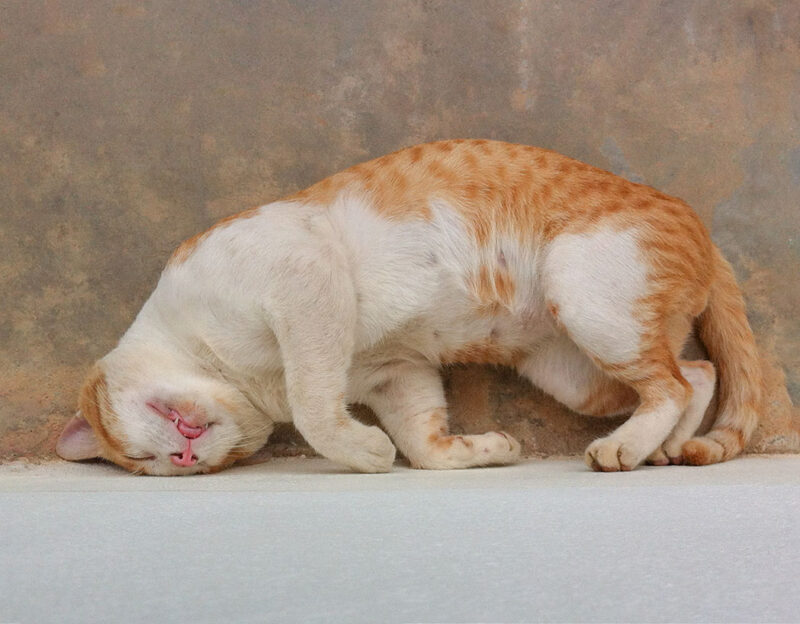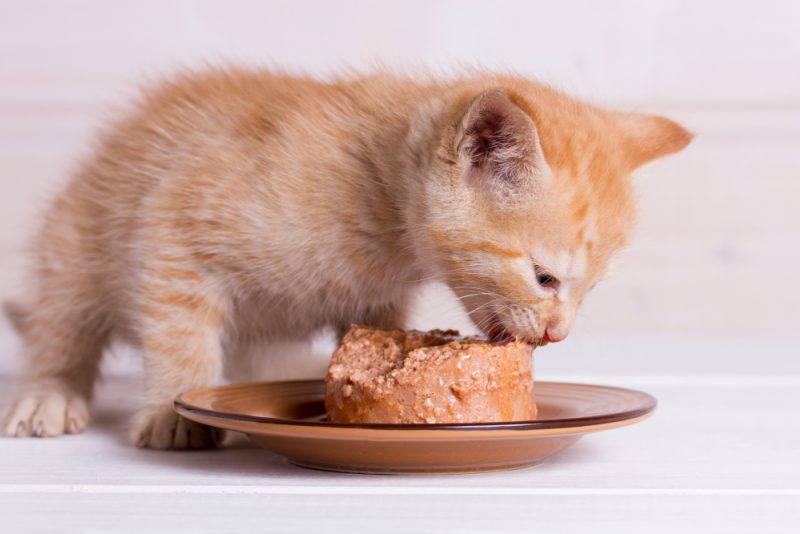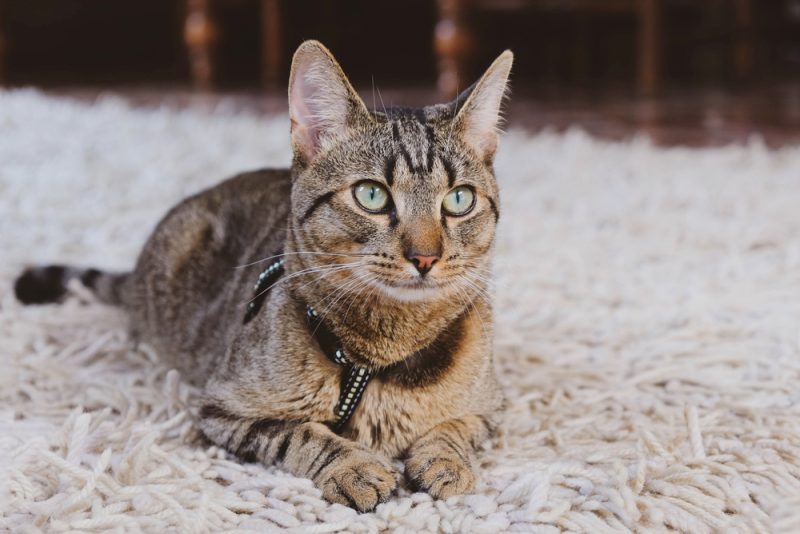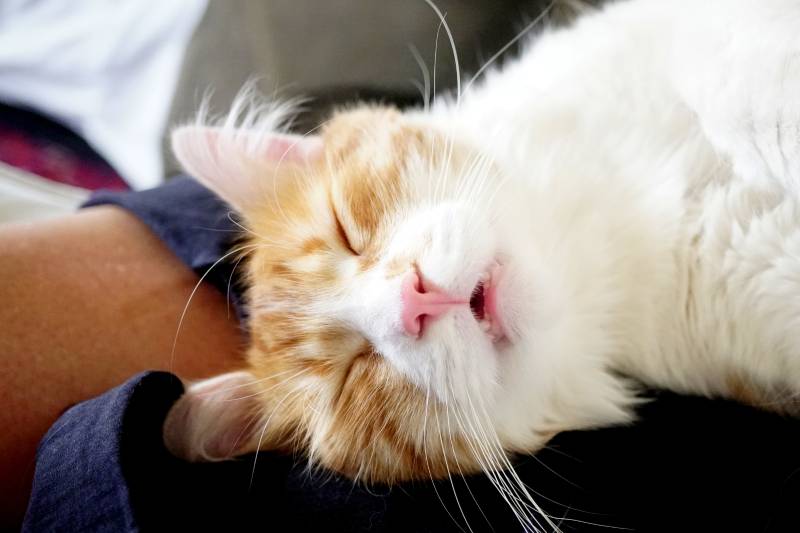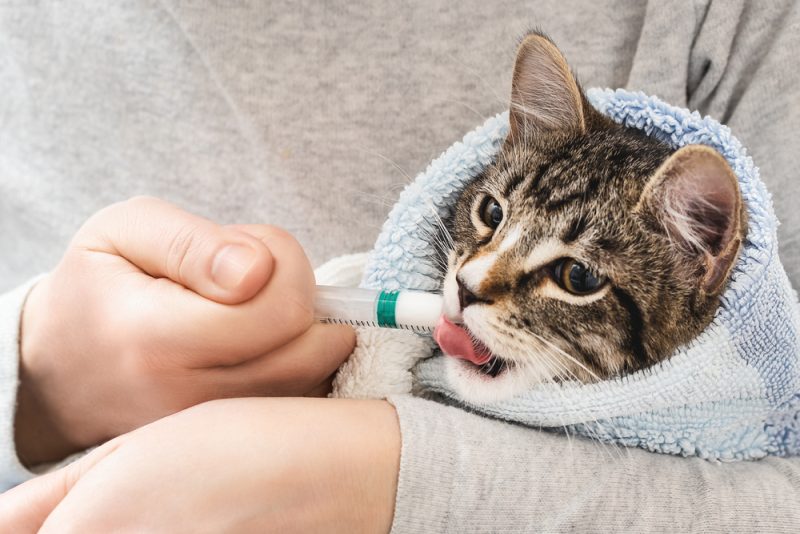Pyometra in cats is a serious infection where your cat’s uterus fills with pus. Your cat can become very ill, and it can even be fatal.
It is thought to be caused by hormonal changes affecting the lining of the uterus and the presence of bacteria. The most effective treatment method is to perform surgery to remove the infected uterus. There are other options available if the cat is intended for breeding, but these are not as reliable. If prompt diagnosis and administration of treatment are given, prognosis is usually good.
If the infection is left, it has the potential to spread into the bloodstream and cause sepsis which is often fatal.

What Is Pyometra in Cats?
Pyometra is a serious and life-threatening infection that occurs in the uterus of cats. In Latin, “pyo” means pus, and “metra” means uterus, so it translates as pus in the uterus. In this condition, the uterus fills with pus produced by bacteria. A pyometra in cats can be open or closed. Open infections involve vaginal discharge leaking out—there is no discharge seen in closed infections. This can be even more dangerous as it can be more difficult to detect. Cats become very sick with a high temperature, reduced appetite, lethargy, and vomiting amongst other things. Treatment can involve antibiotics or surgical removal of the uterus and ovaries. This surgery is called an ovariohysterectomy.
Any cat that has not been neutered can develop a pyometra. It is more commonly seen in older cats that have had lots of heat cycles without being mated. Pyometra usually occurs when a cat has been in heat in the last month.
Being in “heat” is the term used to describe the period when your cat is ready to mate and produce kittens. After the heat cycle finishes, there is a big shift in the circulating hormones which makes it easier for bacteria to establish an infection in the uterus. Most cats have a good prognosis if the problem is identified promptly and they receive treatment straight away. If left untreated, pyometra can have fatal consequences. Pyometra is a medical emergency and if you are suspicious your cat may have a pyometra, you need to go to a vet immediately. Prevention of pyometra is easily done by spaying cats.
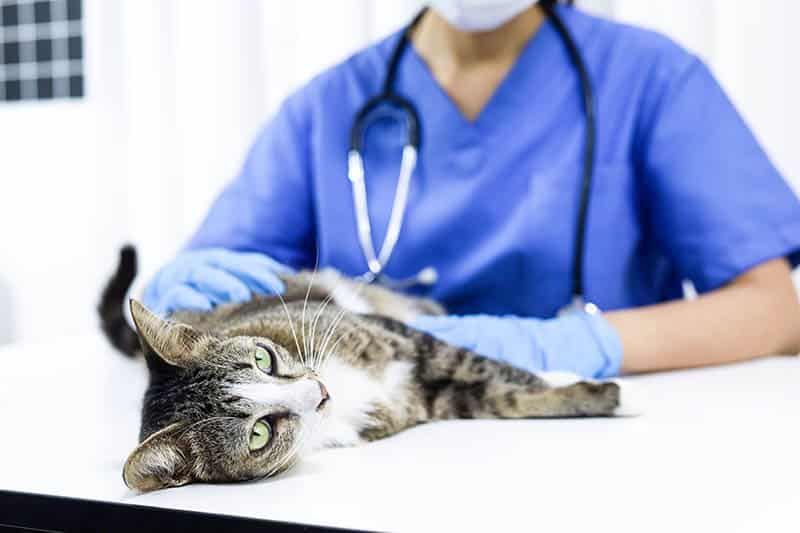
What Are the Signs of Pyometra in Cats?
Clinical signs displayed by a cat with pyometra firstly depend on whether the cat’s cervix (the entrance to the uterus) is open or closed. Signs are often more obvious when the cervix is open as owners will see discharge leaking out of the vagina, however, a closed infection can be more serious as the infection is trapped inside the body and has no route of exit.
- Creamy or blood-tinged vaginal discharge
- Reduced appetite
- Lethargic
- Increased water intake
- Increased urination
- Pain reaction when touched on the back or stomach
- Fever
- Vomiting
- Diarrhea
- Pale gums
- Weakness
- Collapse
Consulting a veterinarian is recommended for the best course of action.
If you need to speak with a vet but can't get to one, head over to PangoVet. It's an online service where you can talk to a vet online and get the advice you need for your pet — all at an affordable price!

What Are the Causes of Pyometra in Cats?
The initial cause of pyometra is hormonal changes making the uterus more susceptible to infections. It usually occurs in older female cats that have not been neutered and have never had kittens. This happens because when a cat is in heat, they experience hormonal changes that cause the uterine walls to thicken in preparation for pregnancy. If the uterus wall repeatedly thickens with no implantation of a pregnancy, cysts develop.
When these cysts burst, they release fluid that facilitates the growth of bacteria. While the cat is in heat, her cervix is open to allow for sperm to swim into the vagina if she is mated. Usually, the white blood cells of the cat’s immune system are stopped from entering the uterus while the cat is in heat. This is to allow the sperm to enter without being identified and destroyed by the white blood cells, however, it also prevents them from acting against bacteria. This means bacteria can enter the uterus and multiply rapidly. As the bacteria grow, the pus is released and a pyometra occurs. When the uterus is full of bacteria and pus, there are toxins released. These toxins can enter the bloodstream and cause sepsis.
The bacteria usually involved in pyometra is E. Coli. This bacterium is spread from the vagina into the uterus. This is facilitated by the cervix being open and soft during the heat cycle. A combination of these different things means the chances of infection are high at this time.
Some cats may develop something called a stump pyometra This occurs when an infection develops in the stump of tissue that has been left behind after a neutering procedure. When a cat is spayed, the reproductive tract is removed from the ovaries to the uterus. The infection develops in the small piece of tissue left behind once the surgery has been completed. This is extremely uncommon in cats.
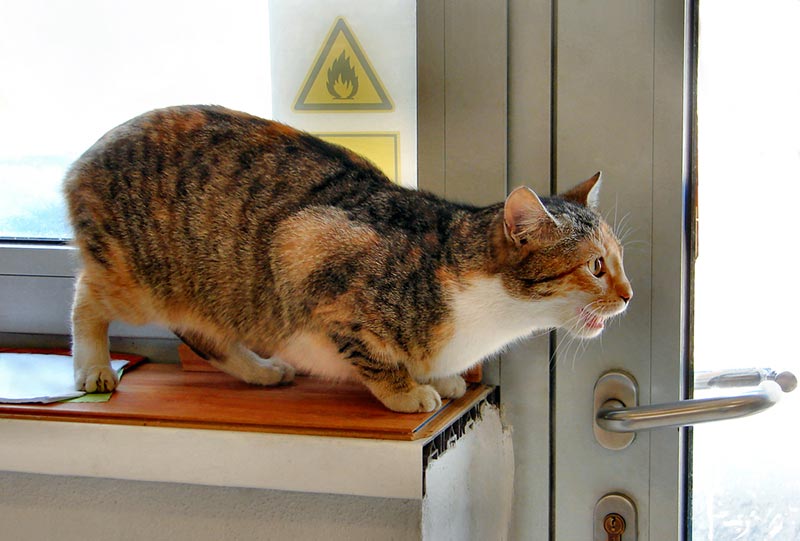
Diagnosis of Pyometra in Cats
A vet will take a detailed history from you and perform a thorough clinical exam. They will need to know if your cat has been neutered and if they have been mated recently (if this information is known by the owner).
All un-neutered females showing any of the clinical signs above should be investigated for having a pyometra as it can be difficult to spot if a closed infection is present. Diagnostic tests that a vet may perform include routine blood tests, urinalysis, X-rays of the abdomen, and an ultrasound scan of the abdomen. The vet may take a sample of any vaginal discharge present to be examined.
How Do I Care for a Cat with Pyometra?
The most common treatment for pyometra is surgical removal of the whole uterus and the ovaries too. This removes the source of the infection completely. On some occasions, other treatment options can be offered as well as surgery. These options have a lower success rate than surgery and more risks are involved. It is usually owners of breeding cats that will ask for these as they want to breed from their cat in the future.
One option is the use of antibiotics to fight the bacteria. Another option is using prostaglandins. These are hormones that cause uterine contractions and open up the cervix. This helps expel some of the pus in the uterus. These two options are often used in conjunction with each other.
Other management such as supportive treatment like intravenous fluid therapy will also be used.

Frequently Asked Questions
What happens if pyometra is left untreated?
If the pyometra infection is left untreated, it is likely your cat will become very sick. The chances of the infection resolving on its own are slim. The bacteria can produce toxins and the toxins can travel from the uterus into the bloodstream, this causes toxic shock syndrome and can be fatal. If the cat does not receive any treatment in the case of a closed pyometra, the uterus can rupture causing septic peritonitis where the abdomen is filled with pus. This is almost always fatal.
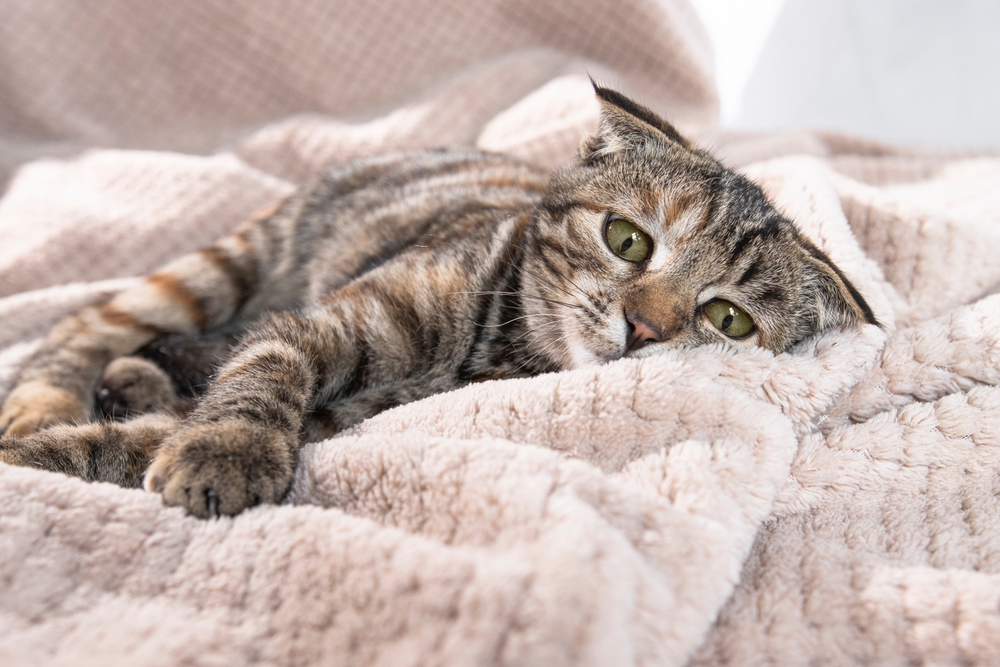
Can pyometra in cats be prevented?
It is possible to prevent the occurrence of pyometra infection by spaying your cat before the infection has developed. An ovariohysterectomy is recommended as this involves the removal of both the ovaries and the uterus. If the owner wants to breed their cat, they should be bred at an appropriate age to minimize the risk of pyometra developing.
How long can a cat live with pyometra?
Once the infection has become established, if the cat does not receive prompt treatment, the cat will deteriorate very quickly. It doesn’t take much time for pyometra to kill a cat. The infection can be fatal within a few days. Closed pyometra infections will generally be more severe and affect the cat quickly as the pus is trapped inside the uterus and has no way to be expelled.

Conclusion
Pyometra in cats is a potentially fatal condition that occurs when a bacterial infection becomes established in your cat’s uterus. It is usually seen in unspayed middle-aged or older female cats. The gold standard of treatment is an ovariohysterectomy to remove the ovaries and uterus.
This usually has a positive outcome if it is carried out promptly. It is a medical emergency and if you suspect your cat has pyometra, you must go to a vet immediately.
Featured Photo Credit: Sergey Nivens, Shutterstock
